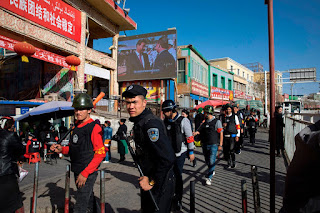Connecting Cultures Through Music
In a time where stark political partisanship seems omnipotent and few things are devoid of controversy, music resides in a time warp, a hallmark of a simpler time that serves to unite otherwise disparate generations, ethnicities and cultures. Last Friday, I was able to experience this unity at a Denzel Curry concert, where music transcended barriers and allowed everyone in the crowd, strangers and friends alike, to connect. Throughout the course of the night, I realized the effect that concerts have on creating a sense of community, and I was surprised that such diversity, which likely would not exist in another setting, blossomed at a rap concert. The concert led me to think of other ways that music can connect, and I discovered that music’s psychological effects are well documented, and they can even repair cultures, a revelation shown by UC Berkeley's Greater Good Magazine (https://greatergood.berkeley.edu/article/item/four_ways_music_strengthens_social_bonds). This ability to connect cultures reminded me of a lunch that I had with Arn Chorn-Pond, a musician and human rights activist who survived the Khmer Rouge regime in Cambodia. Although the rap show’s connection was jovial and trivial in comparison to the more serious connection that Arn Chorn-Pond cultivated, the two effects were similar. Just as Denzel Curry used music to create an environment where everyone felt connected and unified, Arn Chorn-Pond used traditional Cambodian music to empower Cambodian survivors of the Khmer Rouge to reflect on their history and reconnect as a community after being torn apart. Overall, music has an intrinsic power to unite audiences, regardless of whether it is hardcore rap or instrumental flute, physical or mental connection, or whether it exists to assuage political divides or heal the pain of loss and atrocity.


Comments
Post a Comment